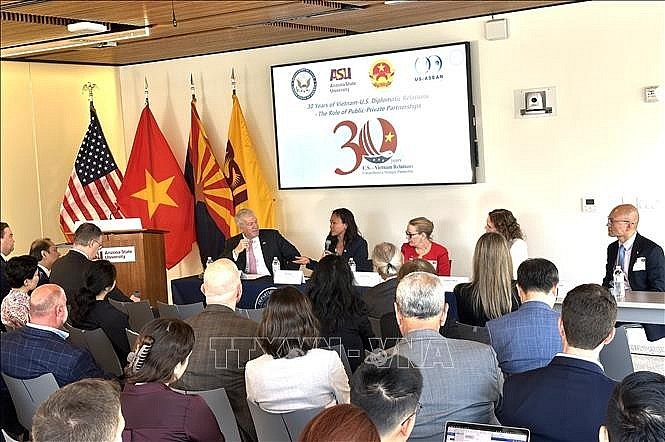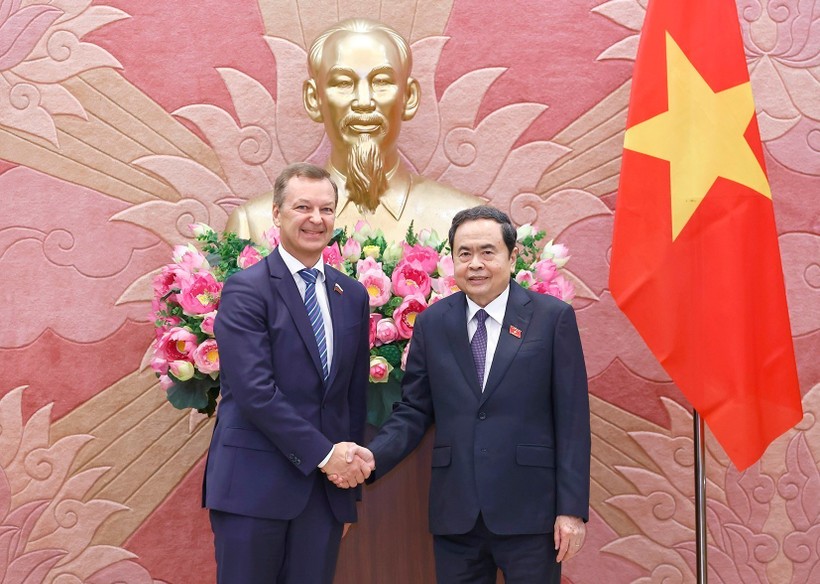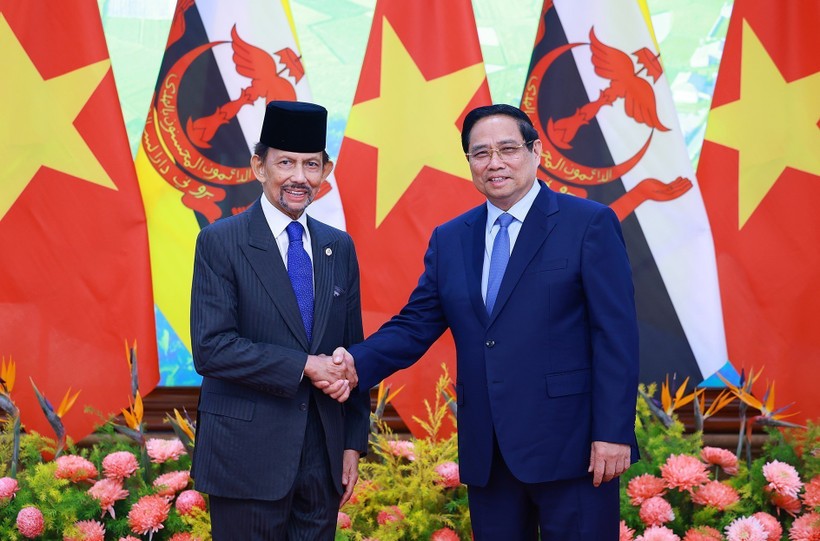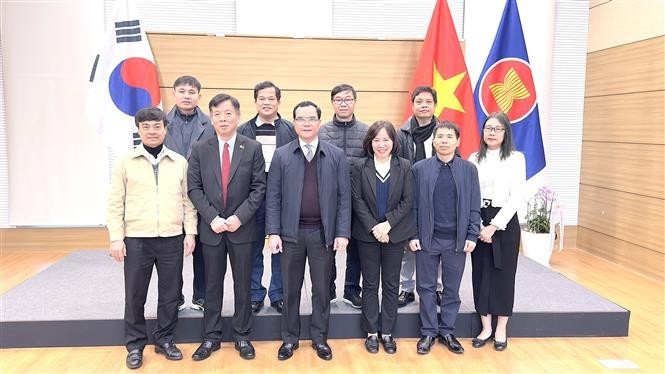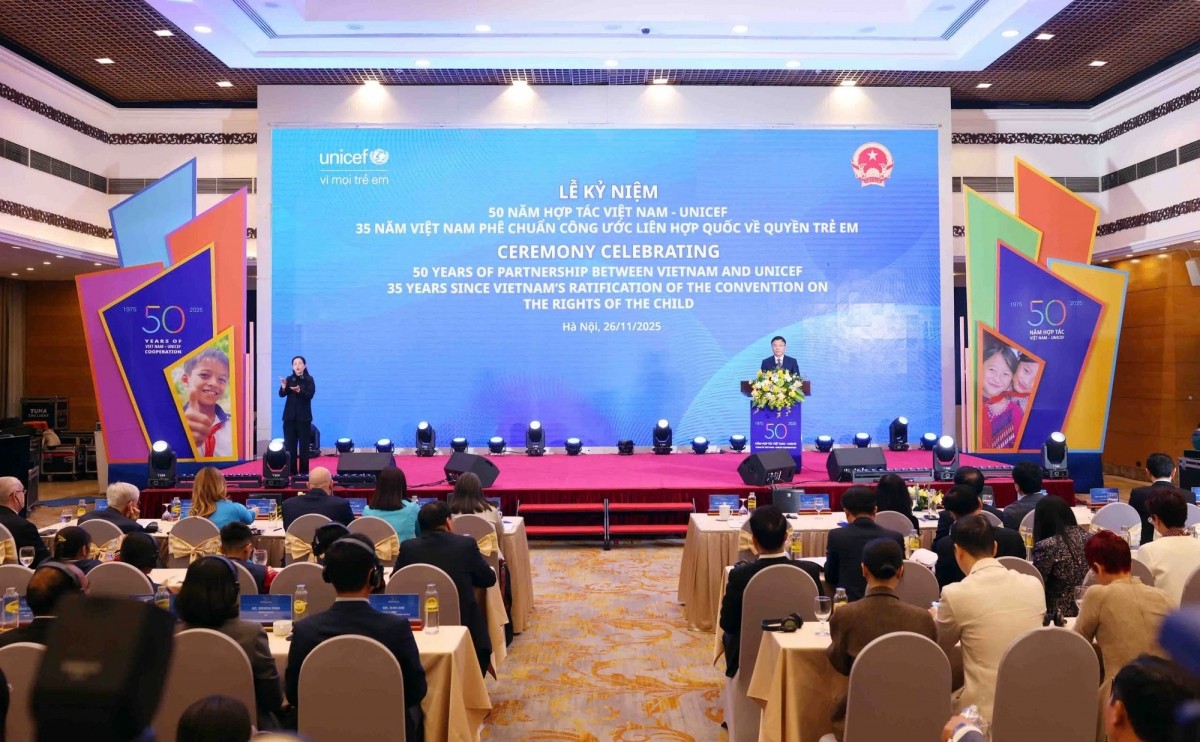As part of a series of activities marking the 30th anniversary of Vietnam–U.S. diplomatic relations (1995–2025), the event drew the participation of more than 100 delegates, including former Vietnamese Ambassador to the U.S. Pham Quang Vinh; former U.S. Ambassadors to Vietnam such as Michael Michalak, Ted Osius, Daniel Kritenbrink, and Marc Knapper; U.S. Deputy Assistant Secretary Andrew Herrup; senior executives from major U.S. corporations including Boeing, Intel, Citi, Lockheed Martin, and Nike; as well as representatives of the Vietnamese-American business community, scholars, and experts from U.S. academic institutions.
In his opening remarks, Vietnamese Ambassador to the U.S. Nguyen Quoc Dung emphasized the consistent and vital role of the business communities from both countries throughout the evolution of Vietnam–U.S. relations. Even prior to normalization in 1995, many American businesses had taken the lead in exploring the Vietnamese market, laying the foundation for bilateral economic cooperation. After normalization, major corporations continued to expand their presence, actively contributing to infrastructure development, workforce training, and institutional reform in Vietnam.
Ambassador Nguyen Quoc Dung affirmed that businesses have not only played a catalytic role in the normalization process but have also served as a stabilizing force in maintaining bilateral engagement—even during periods of political challenges. Today, U.S. investment in Vietnam continues to grow strongly, while an increasing number of Vietnamese businesses are expanding into the U.S. market. He stressed the importance of sustaining enabling conditions so that the private sectors of both nations can build on the strengths and momentum accumulated over the past three decades, thereby making meaningful contributions to sustainable development and deepening the Vietnam–U.S. Comprehensive Strategic Partnership in the new era.
U.S. Deputy Assistant Secretary of State Andrew Herrup also underscored that the Vietnam–U.S. relationship is not only driven by the two governments but is also strongly propelled by businesses and people-to-people ties. He praised the role of the business community in expanding interpersonal connections, promoting educational cooperation, enhancing security, and fostering sustainable economic development. Herrup noted that Vietnam is currently the United States' ninth-largest trading partner and the leading source of students in the U.S. from ASEAN. He welcomed joint initiatives in areas such as artificial intelligence, digital transformation, and education between Vietnamese and American businesses.
The seminar featured two key discussion sessions that reviewed major milestones in bilateral ties and explored the role of the private sector. Participants also offered recommendations to improve workforce quality, accelerate digital transformation, and enhance Vietnam’s standing in global supply chains.
Former U.S. ambassadors to Vietnam expressed strong support for General Secretary To Lam’s vision of elevating Vietnam’s global position through research and development, innovation, and digital technology. Scholars and business representatives from companies like Intel, Boeing, and Lockheed Martin also praised Vietnam’s potential, citing its young, highly skilled workforce and its development strategy centered on high-tech sectors such as AI and quantum technology. Many participants agreed that Vietnam is well-positioned to lead the next chapter of growth in the Asia-Pacific region, and affirmed that U.S. businesses stand ready to partner with Vietnam through frameworks under the Comprehensive Strategic Partnership.
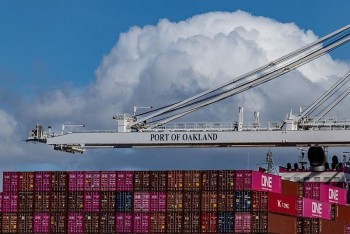 | US Businesses Struggle Amid Trump's Unpredictable Tariff Policies Amid continuous shifts in the tariff policies of President Donald Trump's administration, some US businesses have reduced their orders or put investment plans on hold. |
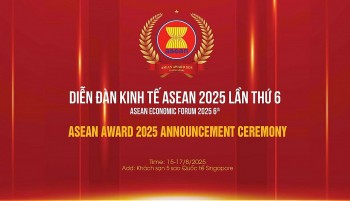 | ASEAN Economic Forum 2025: Opportunity for Vietnamese businesses to connect and reach out The ASEAN Economic Forum 2025 will be held on August 16 in Singapore, marking the 30th anniversary of Vietnam’s accession to ASEAN. Under the .. |

